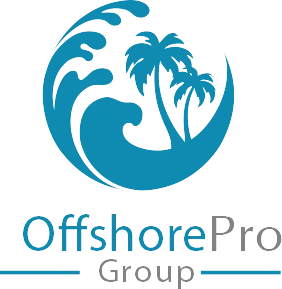Registering a business offshore: myths and reality
Several misconceptions and myths surround offshore zones and conducting business in these jurisdictions, causing many entrepreneurs to miss out on the opportunity to bring their company to the international arena, increase profits, expand their customer base, and reduce tax burdens. Let us examine the most common misconceptions about conducting business in offshore countries and debunk them.

Myth 1: Business in Offshore Countries is Illegal
This is the most widespread misconception about starting a business in an offshore zone. In reality, these jurisdictions are used to optimize tax burdens and operate on an international level, which does not violate the laws of any country. Additionally, the owner of an offshore company must comply with the legal norms of the chosen country, making illegal entrepreneurship impossible.
Of course, offshore companies are granted more administrative freedom, and their activities are not as closely monitored by state authorities, but violating the law is still unacceptable. Each jurisdiction has regulatory bodies to oversee this. Additionally, international regulators monitor the operations of offshore companies, including the following:
- the International Monetary Fund (IMF),
- the Organization for Economic Cooperation and Development (OECD), and
- the Financial Action Task Force (FATF).
Countries do not prohibit their citizens from registering companies in offshore zones. Despite the high confidentiality regarding owners and founders in these states, concealing information about illegal activities is impossible. Today, offshore countries exchange tax information under a specially developed program by international regulatory bodies — the Common Reporting Standard (CRS), further proving the legality of conducting business offshore.
Myth 2: Offshore Companies are Unregulated
Although businesses registered offshore receive various tax, administrative, and decision-making concessions, their operations are fully regulated by the country where the legal entity is registered. Moreover, since these are often developed countries, including European ones with centuries-old legal systems, the regulation here is more explicit, transparent, and comprehensive compared to third-world countries.
In some jurisdictions, the laws are more favorable, while in others, they are pretty strict. For example, in some offshore countries, business owners might be required to have a resident director when registering a company. Some countries require personal presence, while others allow company registration through a representative. In any case, the operations of foreign firms in offshore zones do not go unnoticed by regulatory bodies.
Myth 3: High Crime and Corruption in Offshore Jurisdictions
According to rankings by leading analytical agencies, based on data from the World Bank and Freedom House, high levels of corruption are found in the following countries:
- Syria
- Yemen
- Venezuela
- Afghanistan
- Libya
- Turkmenistan.
Countries with high crime rates include:
- Venezuela
- Afghanistan
- Syria
- Papua New Guinea
- Haiti
- Honduras
- Trinidad and Tobago
- Jamaica.
These are not the jurisdictions where entrepreneurs open offshore businesses. We work with countries in Central America and other states with low levels of corruption and crime, such as the Marshall Islands, Nevis, Panama, and Serbia. The list of offshore zones contains countries with low tax rates and optimal business conditions, attracting international investors. Therefore, the governments of offshore jurisdictions strive to ensure the maximum protection of rights and interests for individuals and legal entities to enhance the countries’ business appeal.
Myth 4: Offshore Company Income is Tax-Exempt
Offshore companies usually enjoy lower tax rates. In some jurisdictions, business owners can opt for zero taxation. However, they are not entirely exempt from taxes. For instance, they may be required to pay a fixed annual fee, the amount of which varies by jurisdiction.
Myth 5: Offshore Zones Harm Global and National Economies
It is pretty evident that business owners create jobs, produce goods, and pay taxes to a foreign state, improving the economy of another country rather than their own. However, the influence of offshore zones goes way beyond the economic state of a particular country. They are part of more extensive global financial processes. Offshore business money continuously works in the global economy, developing various projects.
Even if an entrepreneur keeps their money in a Swiss bank deposit, the money circulates and is used for financing or lending economic and business projects, including state construction, scientific development, space programs, etc. Finances of offshore companies circulate in the global economy, facilitating the free movement of international financial flows, which is crucial for preventing economic stagnation.
Many believe taxpayers’ money goes to offshore zones, but this needs to be clarified. Business owners move free assets, which have already been taxed, offshore. After that, it is up to the owner to decide, in which country to employ such assets.
Myth 6: Offshore Zones are Unreliable
Celebrities, actors, famous athletes, and wealthy individuals on the Forbes list keep their assets in offshore bank accounts. Banking institutions in these jurisdictions care about the safety of their client’s assets and their own reputations. Companies operate in compliance with international norms, utilizing the preferences provided by specific jurisdictions.
Myth 7: Registering an Offshore Company is Very Expensive
The costs of registering a company in an offshore zone depend on several factors:
- The jurisdiction where the business will be registered
- The number of founders
- The type of business
- The form of ownership
- The list of necessary documents
- The need for nominal services, virtual offices, and other additional services.
The tasks and goals of the business influence the form of economic activity. Considering all the factors, one can calculate the registration expenses in advance.
Contact our specialists if you have any questions. You can find out the cost of registering a company in a chosen offshore jurisdiction or compare the conditions in various offshore zones. We help clients manage finances effectively, offering special deals such as discounts on opening a bank account when registering a company.
Conclusion
Despite the absurdity of most myths about registering a company in an offshore zone, many business owners believe them and miss the opportunity to start a successful enterprise in a low-tax, stable economic environment.
Offshore jurisdictions are an effective solution for asset storage, getting education abroad, and creating international holding companies. The choice of a specific country and registration expenses depend on the goals and type of the business.
Contact our specialists if you want to register a company in an offshore zone quickly and hassle-free. We provide expert assistance at all stages of starting a business in a favorable jurisdiction. Our services also include international consulting and assistance in obtaining residence permits. We work with many countries and know all the intricacies of offshore legislation.
